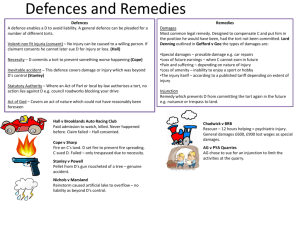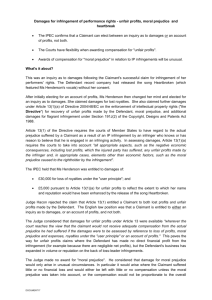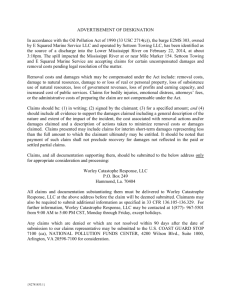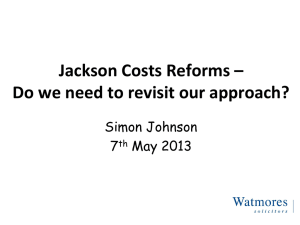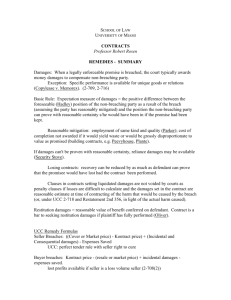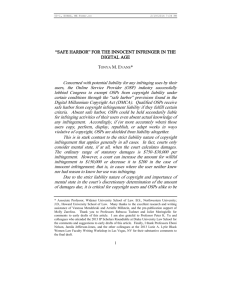here - Addleshaw Goddard
advertisement
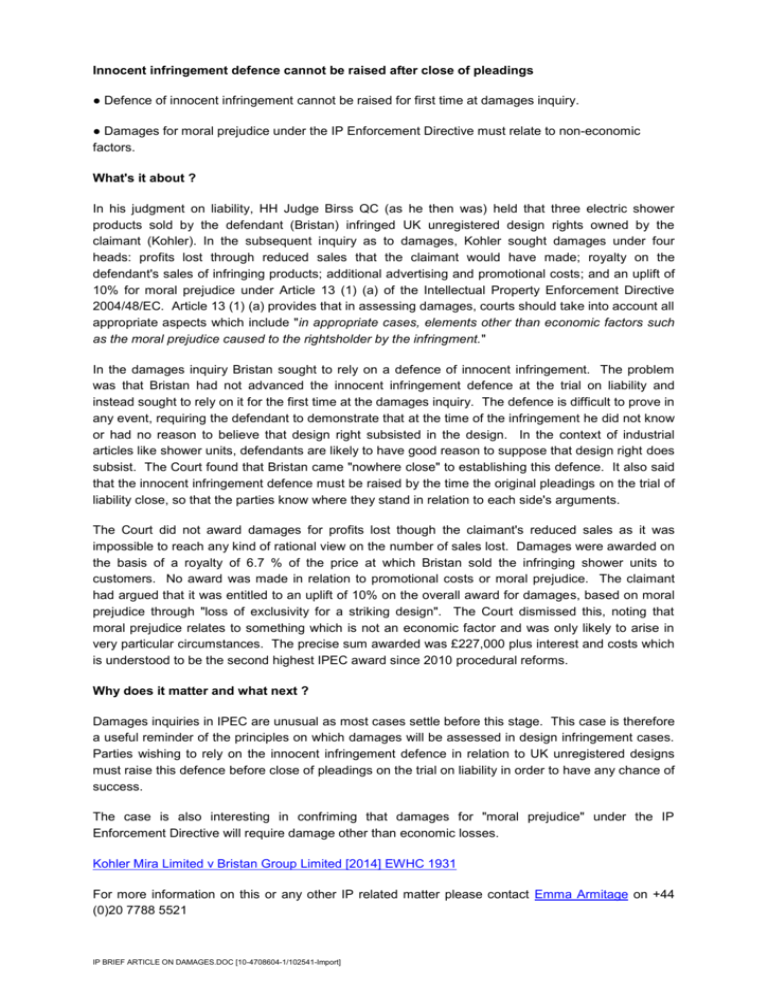
Innocent infringement defence cannot be raised after close of pleadings ● Defence of innocent infringement cannot be raised for first time at damages inquiry. ● Damages for moral prejudice under the IP Enforcement Directive must relate to non-economic factors. What's it about ? In his judgment on liability, HH Judge Birss QC (as he then was) held that three electric shower products sold by the defendant (Bristan) infringed UK unregistered design rights owned by the claimant (Kohler). In the subsequent inquiry as to damages, Kohler sought damages under four heads: profits lost through reduced sales that the claimant would have made; royalty on the defendant's sales of infringing products; additional advertising and promotional costs; and an uplift of 10% for moral prejudice under Article 13 (1) (a) of the Intellectual Property Enforcement Directive 2004/48/EC. Article 13 (1) (a) provides that in assessing damages, courts should take into account all appropriate aspects which include "in appropriate cases, elements other than economic factors such as the moral prejudice caused to the rightsholder by the infringment." In the damages inquiry Bristan sought to rely on a defence of innocent infringement. The problem was that Bristan had not advanced the innocent infringement defence at the trial on liability and instead sought to rely on it for the first time at the damages inquiry. The defence is difficult to prove in any event, requiring the defendant to demonstrate that at the time of the infringement he did not know or had no reason to believe that design right subsisted in the design. In the context of industrial articles like shower units, defendants are likely to have good reason to suppose that design right does subsist. The Court found that Bristan came "nowhere close" to establishing this defence. It also said that the innocent infringement defence must be raised by the time the original pleadings on the trial of liability close, so that the parties know where they stand in relation to each side's arguments. The Court did not award damages for profits lost though the claimant's reduced sales as it was impossible to reach any kind of rational view on the number of sales lost. Damages were awarded on the basis of a royalty of 6.7 % of the price at which Bristan sold the infringing shower units to customers. No award was made in relation to promotional costs or moral prejudice. The claimant had argued that it was entitled to an uplift of 10% on the overall award for damages, based on moral prejudice through "loss of exclusivity for a striking design". The Court dismissed this, noting that moral prejudice relates to something which is not an economic factor and was only likely to arise in very particular circumstances. The precise sum awarded was £227,000 plus interest and costs which is understood to be the second highest IPEC award since 2010 procedural reforms. Why does it matter and what next ? Damages inquiries in IPEC are unusual as most cases settle before this stage. This case is therefore a useful reminder of the principles on which damages will be assessed in design infringement cases. Parties wishing to rely on the innocent infringement defence in relation to UK unregistered designs must raise this defence before close of pleadings on the trial on liability in order to have any chance of success. The case is also interesting in confriming that damages for "moral prejudice" under the IP Enforcement Directive will require damage other than economic losses. Kohler Mira Limited v Bristan Group Limited [2014] EWHC 1931 For more information on this or any other IP related matter please contact Emma Armitage on +44 (0)20 7788 5521 IP BRIEF ARTICLE ON DAMAGES.DOC [10-4708604-1/102541-Import]
